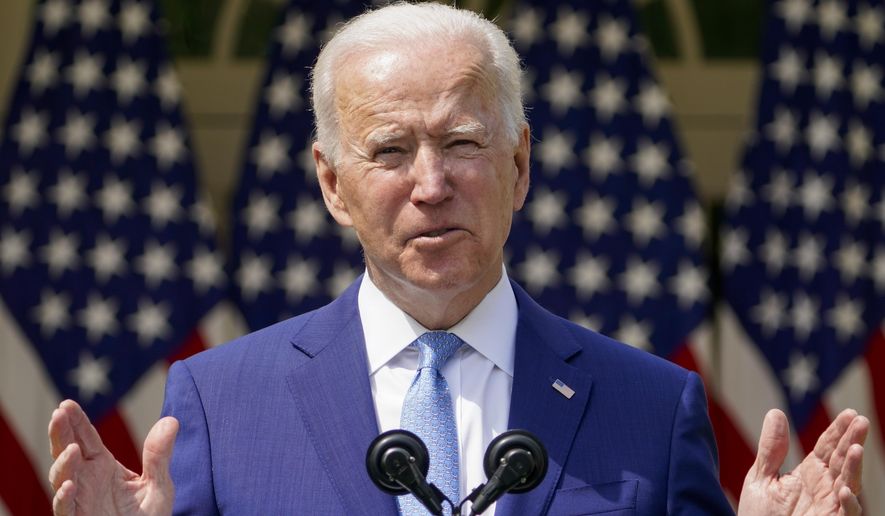OPINION:
President Biden has come into office with the U.S. economy still reeling from the COVID-19 pandemic. At the same time, many in Washington are alarmed by China’s fast-rising industrial supremacy. In response, Biden has introduced an American Jobs Plan that aims to “create millions of good jobs, rebuild our country’s infrastructure, and position the United States to out-compete China.” These are key priorities, but Congress should take note that a little-known piece of legislation is currently poised to scuttle much of the president’s goal of rebuilding U.S. manufacturing.
At issue is the Miscellaneous Tariff Bill (MTB), which is already under consideration by the House Ways and Means Committee. Essentially, the MTB allows for temporary suspension of tariffs on specific products imported into the United States. The stated rationale, of course, is to waive tariffs on products that aren’t available domestically. In reality, however, the MTB continues to be used by multinational businesses and retailers to avoid sourcing American-made goods and instead bring in cheap imports.
Congress has passed MTB’s from time to time, bending to the will of the import lobby. Retailers and other businesses—with no actual manufacturing presence in the United States—use the MTB to bring in the foreign goods they want to sell in the U.S. market. And helping them in their quest are expensive law firms that happily side with the interests of importers rather than America’s workers.
President Biden’s American Jobs Plan could be threatened by the MTB on various fronts. In the electric vehicle (EV) market, for example, Mitsubishi-Fuso Bus & Truck Corporation has petitioned the government to waive the 25 percent tariff on medium-duty electric trucks. Granting the waiver could unleash a potential flood of imported electric trucks that would quickly overwhelm America’s infant EV truck industry. Unfortunately, Mitsubishi’s petition has already received “recommended” status by a government agency and could be allowed if Congress passes the MTB bill.
Another example is MarineMax, Inc., a publicly traded company on the New York Stock Exchange that describes itself as the nation’s largest recreational boat and yacht retailer. The company doesn’t actually make boats. In 2019, however, it submitted three petitions for recreational boats claiming no domestic options were available. The Department of Commerce found that the company’s claims were wrong and rejected the petition.
The Coleman Company, Inc., a popular brand for outdoor recreation products, submitted a petition for the insulated coolers and beverage bags it retails. Coleman doesn’t make these items, and it claimed no domestic production existed. However, the Department of Commerce determined these claims were wrong.
Domestic manufacturers keep trying to rebuild production in America. But they’re often thwarted by the MTB. The Coalition for a Prosperous America (CPA), which represents domestic producers across many sectors of the U.S. economy, recently examined the MTB program—including thousands of petitions seeking tariff elimination. CPA found that, again and again, petitions from companies with foreign supply chains falsely claimed no domestic production existed for specific products.
The MTB should not be passed until Congress and the president have established goals and strategies to support the industries they want to rebuild. They must confront the fact that the MTB is repeatedly used by companies that simply aren’t interested in rebuilding key U.S. industries, including automotive, aerospace, and electronics.
Because the MTB conflicts with President Biden’s “Build Back Better” agenda, it should not be renewed until it’s successfully reformed. It’s time for Congress to tell multinationals and retailers that more products must be made in America,—rather than sourced from overseas. That is the smartest long-term path to create good-paying jobs at home.
• Michael Stumo is CEO of the Coalition for a Prosperous America. Follow him at @michael_stumo




Please read our comment policy before commenting.